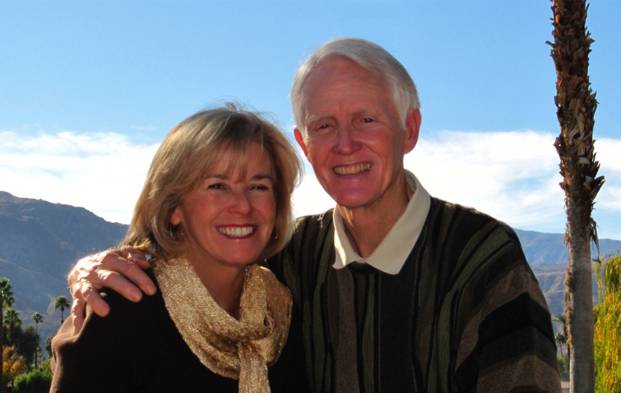
Ch-3: Develop Your Higher Self:
The part that loves you unconditionally
Part 3
Tom G. Stevens PhDPsychologist/Professor Emeritus, California State University, Long Beach
Send Feedback/Questions to: Tom.Stevens@csulb.edu
You Can Choose To Be Happy:
Site dedicated to enhancing human happiness, self-development, and success
SITE MAP: All free Self-help resources includes online book, You Can Choose To Be Happy, and SHAQ

|
|||
| search engine by freefind |
Return to Happy Homepage
Go to book Contents Return to chapter contents
Is it possible to make sudden, dramatic life and personality changes?
PERSONALITY CHANGE CAN BE SUDDEN, DRAMATIC, AND ENDURING
Many people (including many psychologists) either believe that radical personality changes can't happen at all or believe that they take a tremendous amount of time and effort to achieve. They believe that years of therapy are required. Personality change, as measured by most personality tests, usually takes awhile.
Yet, how do you explain someone deeply involved with drugs and the drug culture who suddenly stops taking drugs; stops stealing; seeks help; gets an honest job that pays far less than dealing drugs; leaves his old friends and lifestyle behind; and becomes more open, honest, and caring toward others?
How can all of these changes occur almost overnight? I have known many people who have made such radical changes. There are many documented cases of people making profound changes in their identity, their values, their goals, and their behavior as the result of one experience.
Often the people making these changes refer to these experiences as conversion experiences. Some people describe them as finding a new direction in life, or achieving some basic insight that helped them change their entire life. In my own life, I would compare my teenage experience of choosing happiness over success to a conversion experience. In some respects, the key to my change was simple. I suddenly understood that people's personal happiness and well-being were more important than any type of success, "being number one," money, being popular, pleasing other people, or anything else.
In other respects the insight was much more complex. I had been thinking about parts of this bigger concept for several months. However, until the time I got the right insight and made a decision to live by it, my overall thoughts and actions barely changed. I thought about the many implications of this new insight. I wrote a list of guidelines called "How to Be Happy" for living by this new philosophy.
As I began to contemplate actual commitment to a new way of life, I felt a great deal of anxiety about choosing something so radically different from everything I had learned. I feared that I might be wrong. On the other hand, I felt excited by the possibilities of making happiness for self and others my most important goal. I decided to make an experiment out of it. I would try living by that new philosophy for a while.
I feared that I might not persist living by these guidelines. I feared looking back in a few years and saying, "I forgot to be true to these insights." But since that time--more than 30 years ago--I have generally made decisions consistent with that original commitment. Without that "conversion" experience, I wouldn't have become a psychologist; and I wouldn't have had a life filled with so much peace and joy.
HOW DO PEOPLE MAKE RADICAL PERSONAL OR LIFE STYLE CHANGES?
I have been fascinated by people who have made radical changes in their lives. When I meet such people, I find out all I can about what caused them to make these dramatic changes. I have interviewed dozens of these people and have been amazed at the similarity of their reports. Almost all of my interviewees can point to a brief time period--often the exact day or hour--when they believe they made some new commitment to change. Another similarity was that they made this new commitment the most important value in their lives. It became like Tillich's ultimate concern.
One woman, Ann, had weighed more than 300 pounds for years. She had tried everything--including surgical removal of fatty tissue. Ann had lost large amounts of weight on numerous occasions. However, she had always regained her weight. The way she described her previous state of mind is that she always knew in the back of her mind that enjoying food was more important than being healthy and trim. Inside, Ann knew she wouldn't lose weight.
"Then, one day I just decided to make being healthy and slim the most important thing in my life." Ann thought about the implications in terms of her daily habits and decisions. She thought about the potential problems of making her own health and weight loss number one. Each time she thought of a situation where she knew she would have a problem, she would consciously decide in her imagination to accept the implications of her new commitment.
Her first major test came that week. Ann's best friend, Carrie, invited Ann over for one of her special dinners. Carrie was also obese, and she loved to cook huge meals with thousands of calories as a special gift to Ann. Carrie was very sensitive and would feel extremely hurt if Ann didn't eat everything that she worked so hard to prepare.
Ann was terrified of hurting Carrie's feelings and losing her as a friend. Yet, she faced her worst fears and told herself, "Being healthy and losing weight is the most important thing in the world to me right now. If necessary, I am even willing to give up my best friend." Once she passed that test, one of her biggest barriers had been overcome--her fear of rejection. It took her about two years to get down to 140 pounds. Fifteen years later she had never allowed herself to get over 145.
The center of radical change--a decision for a new Ultimate Concern
I have interviewed two other women who lost more than 200 pounds and kept their weight down permanently. Their stories were similar to Ann's. One woman said, "I started losing when I decided to face the truth about my problems and decided to care for myself more than I cared about what others thought of me." Every one of the dozens of people making radical lifestyle changes has chosen a new set of values, priorities, or view of life. Their new commitments consistently placed more value on people's health and happiness.
The BOOK (free download): Go to Contents of Dr. Stevens' book, You Can Choose To Be Happy: "Rise Above" Anxiety, Anger, and Depression.
SELF-HELP INFORMATION: FREE SELF-HELP materials available on this web site (click here to see list)
ORDERING the BOOK: How to ORDER You Can Choose To Be Happy
SHAQ QUESTIONNAIRE: Free Success and Happiness Attributes Questionnaire (SHAQ) to assess self on many factors including HQ-Happiness Quotient
EMAIL DR. STEVENS: Email feedback to Dr. Stevens tstevens@csulb.edu I welcome your comments about my web site or any of its contents.
Self-Help and other resources on this website (and site map)
Web site created and maintained by: Tom G. Stevens PhD Psychologist-Faculty Emeritus,
California State University, Long Beach Counseling and Psychological Services.
URL of this web site: http://home.csulb.edu/~tstevens
HOME PAGE: Return to Dr. Stevens' Home Page